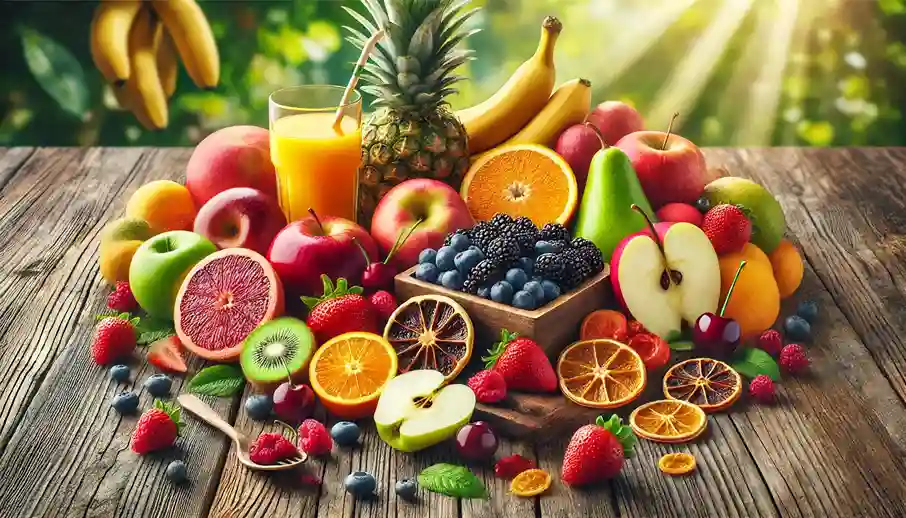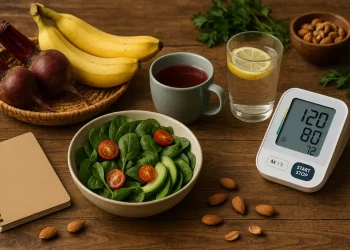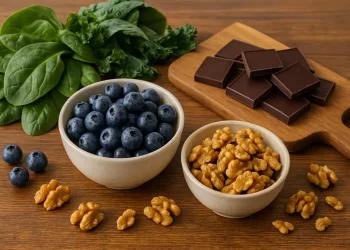We have all been there. You’re staring into the fridge, another diet plan crumbling, and all you crave is something…satisfying. Could fruit for weight loss really be the answer? It’s easy to feel overwhelmed with conflicting information, but understanding fruit’s role in weight loss is simpler than you think.
So, can fruit support weight loss? Let’s explore the details.
Understanding the Power of Fruit for Weight Loss
Fruit sometimes gets a bad reputation because of its sugar content. However, fruit’s natural sugars differ from added sugars in processed foods. Fruit provides vitamins, minerals, antioxidants, and fiber.
This makes fruit nutritious, even when trying to lose weight. With its high water content, fruit can also help with hydration. If you are looking for fresh fruit delivery check out P2P.
Why Fruit Is Your Weight Loss Friend
Most fruits are relatively low in calories and rich in dietary fiber. This combination keeps you feeling full and satisfied. It also slows digestion.
This helps prevent blood sugar spikes and crashes. As a result, you’ll manage cravings better and be less likely to overeat.
Choosing fruit over a candy bar is a small change with long-term benefits. If you are seeking healthy snacks, aim for two cups of fruit daily. Combine this with exercise and movement for a healthier lifestyle.
Nutrients and Fruit: A Winning Team for Weight Loss
Fruit is full of vitamins and minerals. You’ll likely increase your Vitamin C intake by eating more fruit.
Vitamin C is essential for immune support. A healthy immune system supports regular exercise. Regular movement improves weight management. One study even highlights the benefits of keto snacks for weight loss as an effective method.
Fruit also contains fiber, promoting regularity and gut health, which improves metabolism and supports weight loss. Additionally, the minerals and phytonutrients in fruit help your body function optimally.
The Best Fruits for Weight Loss
Many options are available for those wanting to use fruit for healthy weight management.
Berries
Berries are nutritional powerhouses. Blueberries, raspberries, strawberries, and blackberries are low in calories and high in fiber, making them ideal for snacking. They’re also packed with antioxidants for added health benefits.
Apples
Apples are rich in fiber and water content, promoting fullness without adding excess calories. They are a convenient and healthy snack option. Learn more from the experts about healthy snacks for weight loss.
Citrus Fruits
Grapefruits, oranges, lemons, and limes are refreshing choices. Their high Vitamin C content boosts immunity. They also support weight management. Citrus fruits are known to aid weight loss. Citrus fruits contain limonoids and naringenin, antioxidants that may help burn fat.
Stone Fruits
Peaches, plums, nectarines, and cherries can be enjoyed fresh or added to yogurt or oatmeal. They can be a healthy and delicious part of a balanced diet.
Fruits to Eat in Moderation for Weight Loss
Some fruits have higher sugar and calorie content. It’s important to be mindful of this when incorporating fruit into a weight loss plan.
Mangoes, Pineapples, and Bananas
Tropical fruits like mangoes, bananas, and pineapples have higher sugar levels. This can contribute to faster fat storage compared to other fruits. However, locally grown tropical fruits retain higher nutritional value, fiber, antioxidants, and water density than those shipped long distances.
Moderation is key when consuming tropical fruits, especially for weight loss.
Dried Fruit
Dried fruit contains more concentrated sugars than fresh fruit. It also often contains added sugar, leading to a higher calorie intake with smaller portions.
For instance, ¼ cup of raisins has the same sugar and carbs as nearly 3 cups of fresh grapes. Opting for fresh grapes allows for a larger volume with fewer sugars and carbs. Fruit juice should also be consumed in moderation.
Fruit Juice
Store-bought fruit juice is usually loaded with added sugar. Juicing removes many nutritional benefits, especially fiber. It’s best to avoid store-bought fruit juice. Try choosing whole fruits or homemade smoothies instead.
Making Fruit Work for Your Weight Loss Journey
Fruits and weight loss can work well together with mindful choices and healthy eating habits. Understanding high-GI fruits is beneficial.
Whole Fruit is Better Than Processed
Eating the skin or peel of fruit provides more fiber, vitamins, and other health-boosting substances. Eat a whole apple rather than juicing it to avoid excess sugar and retain more nutrients. Fresh fruit provides more benefits.
Pair Fruit with Protein or Healthy Fats
Combining fruit with protein (like nuts) or healthy fats helps regulate sugar digestion, resulting in a slower release of energy and reduced fat storage.
Timing Your Fruit Consumption
Fruit digests quickly and contains more sugar than many other foods. Higher-sugar fruits, especially dried or less fresh options, can lead to greater fat storage compared to locally sourced, organic options.
Choosing whole fruits over processed options can support a healthy weight. High fiber fruit can improve digestion and aid weight management.
In Closing
Fruit can be a great addition to a healthy weight loss plan. Focus on whole fruits, enjoy them as part of a balanced diet, and choose lower-sugar options for weight loss benefits.
There’s something satisfying about enjoying flavorful food that also supports your health goals. Incorporating a variety of fruits into your diet can contribute to overall health and wellness. Eating fruits as part of a balanced diet can offer a wide variety of nutrients.
Disclaimer
This article provides general information and is not a substitute for professional medical advice, diagnosis, or treatment. Always consult with a healthcare provider, nutritionist, or doctor for more personalized advice regarding your dietary and weight loss goals. Well Health Organic does not take responsibility for the accuracy or completeness of the information provided. The recommendations mentioned in this article are for general guidance and informational purposes only. We do not endorse or recommend any products, remedies, or specific methods. If purchasing products through any mentioned links, do so at your discretion.
Also Read This : Rice for Weight Loss: How much Rice should you eat for best results















